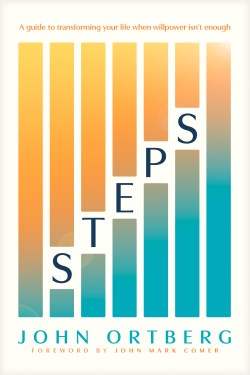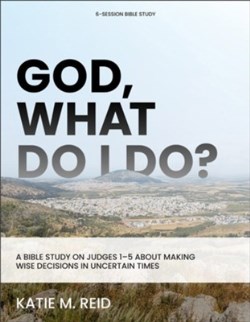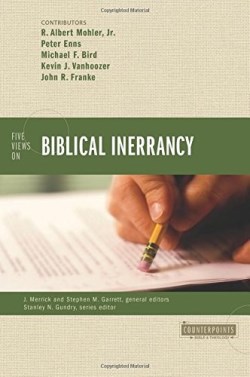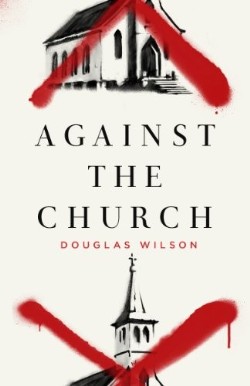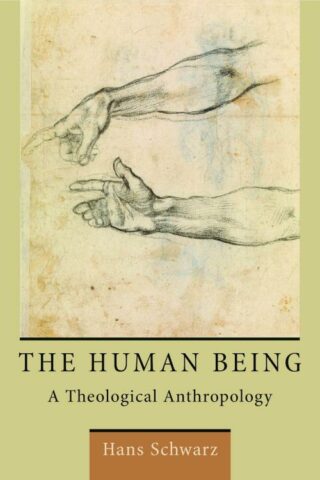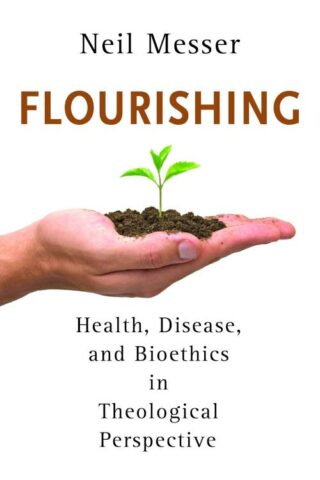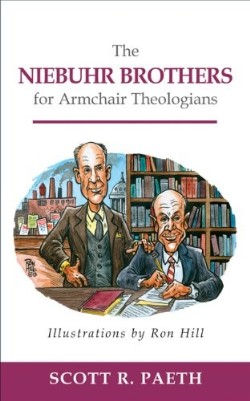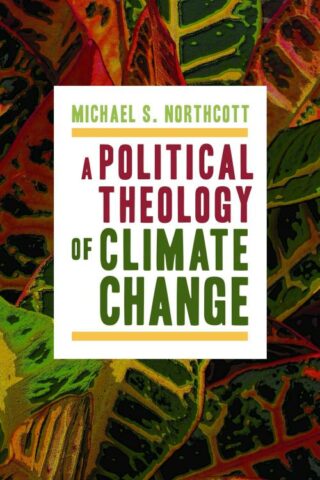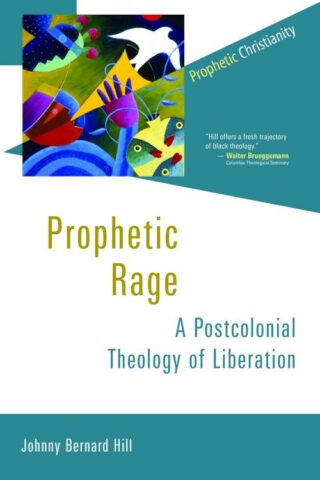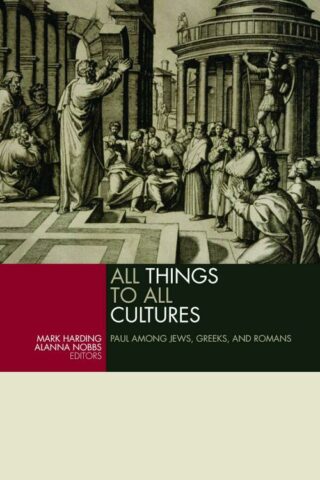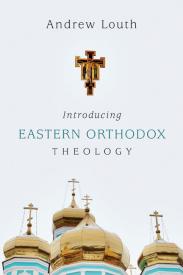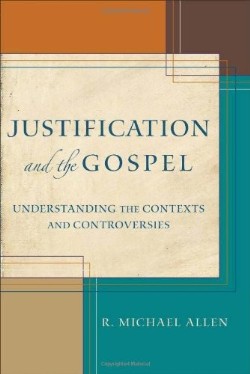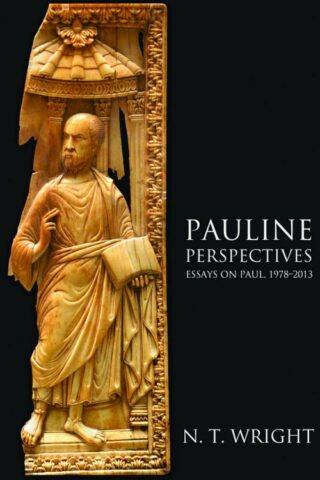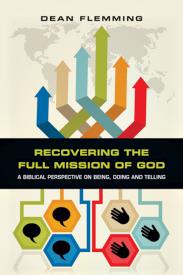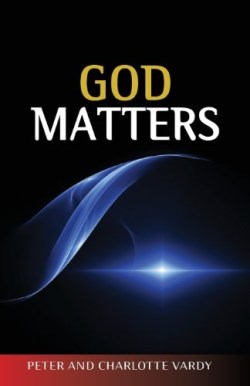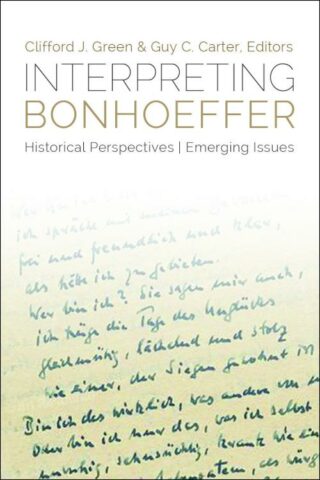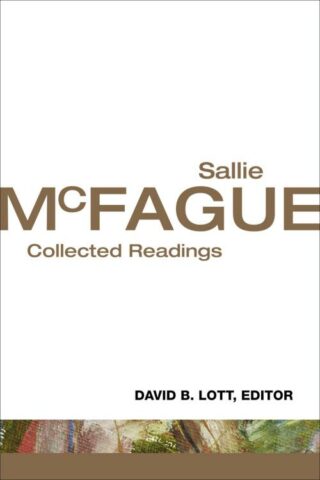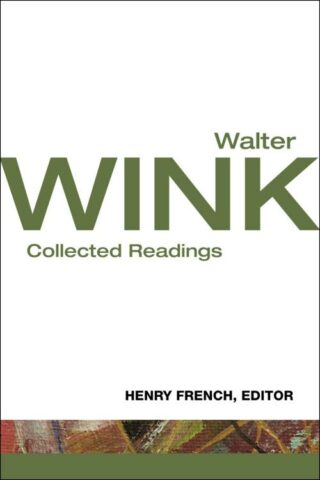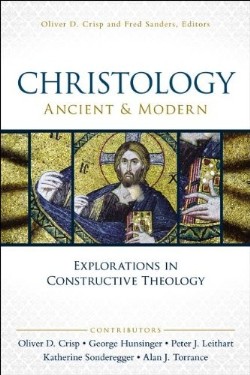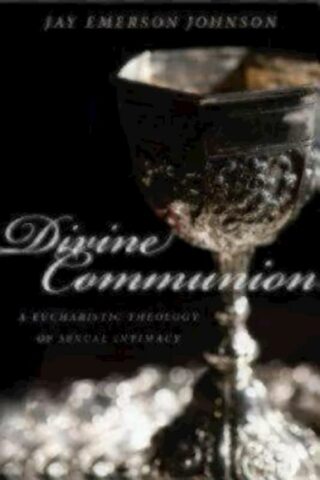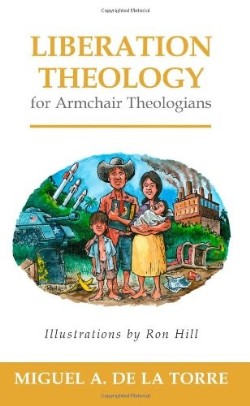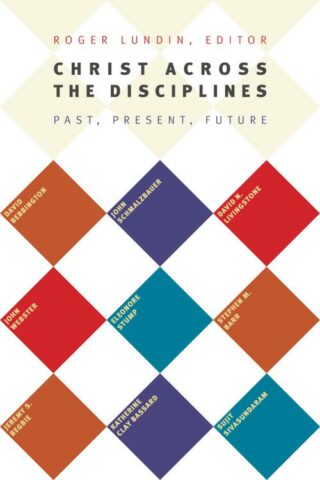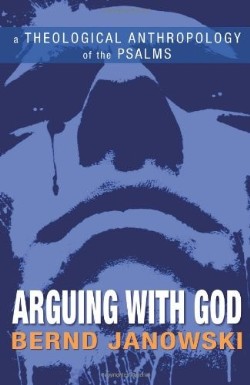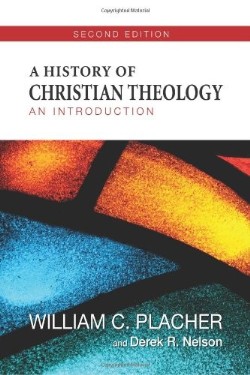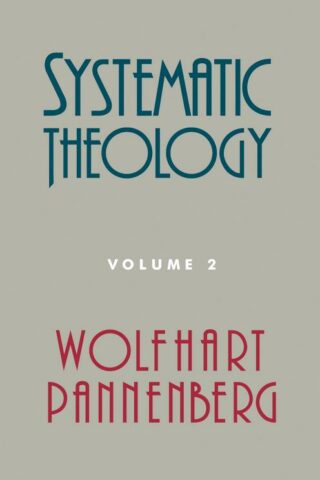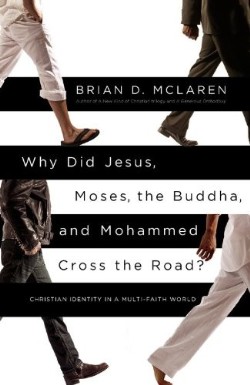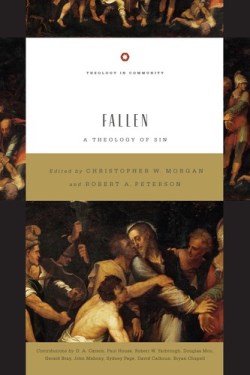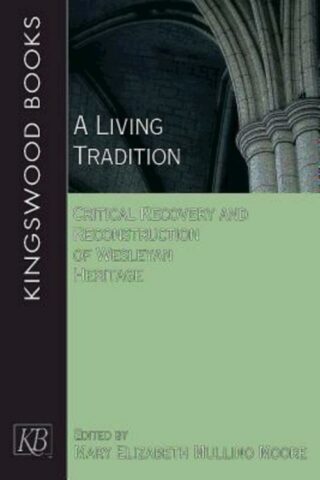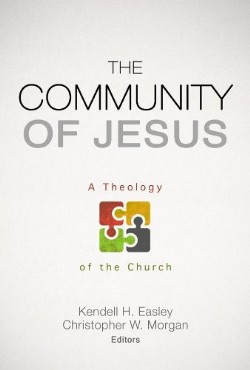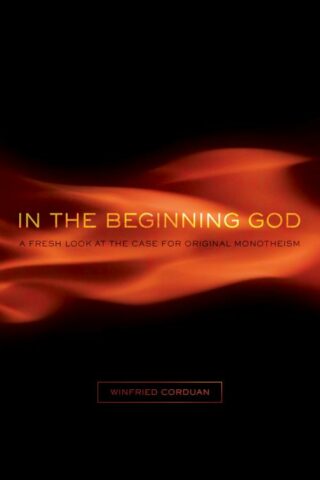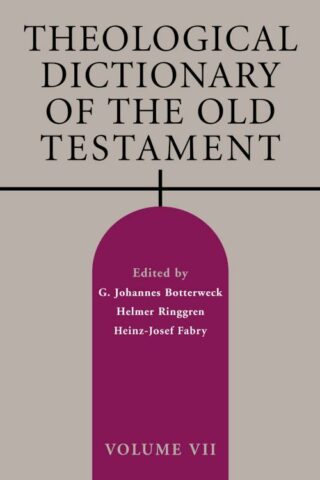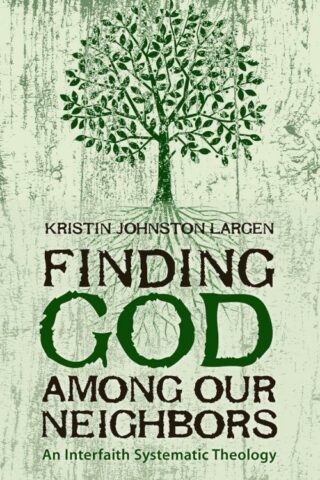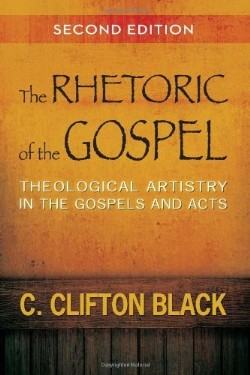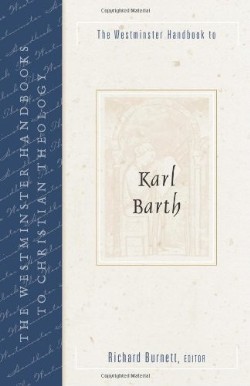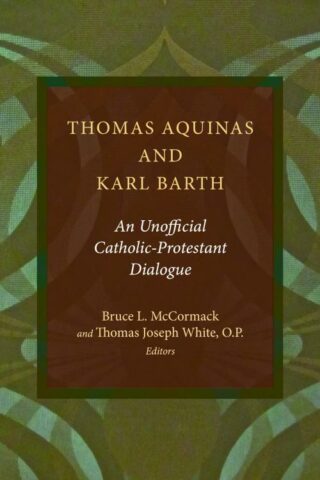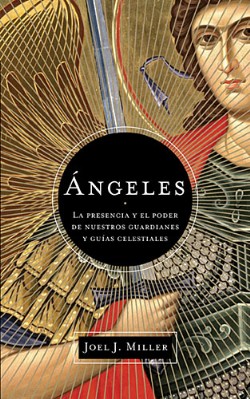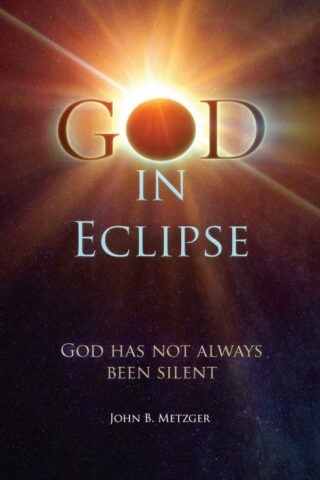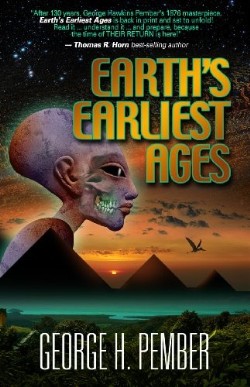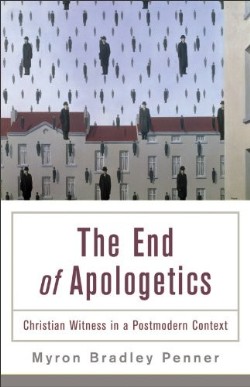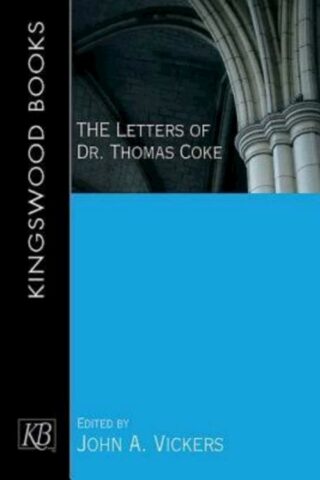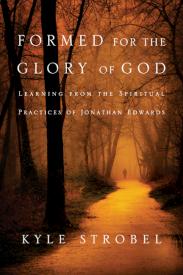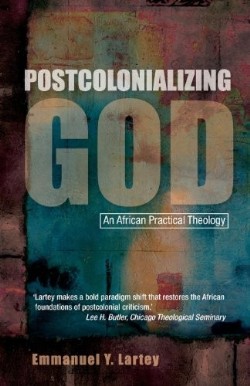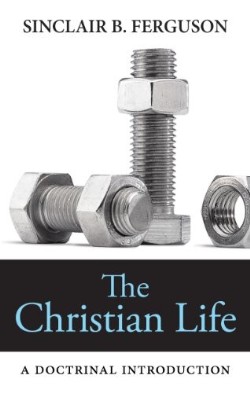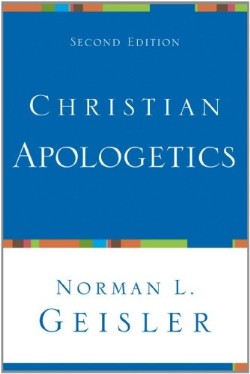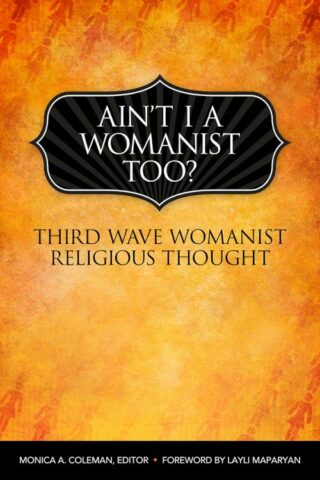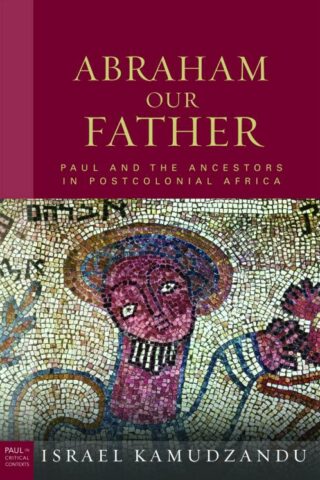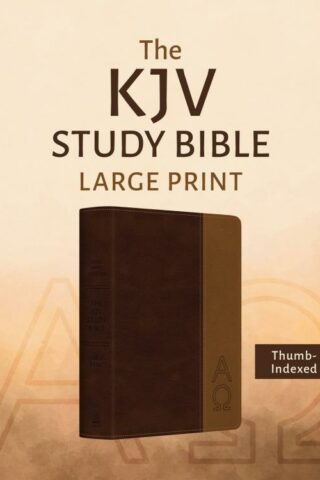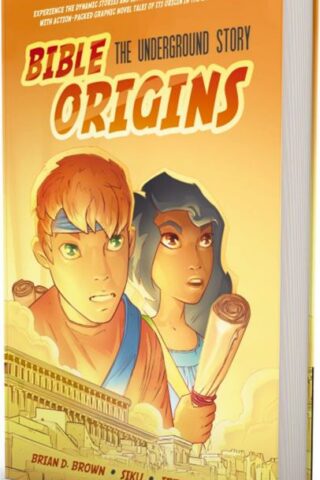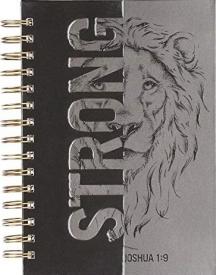Theology (Exegetical Historical Practical etc.)
Showing 901–950 of 2361 resultsSorted by latest
-
5 Views On Biblical Inerrancy
$22.99There is little doubt that the inerrancy of the Bible is a current and often contentious topic among evangelicals. Five Views on Biblical Inerrancy represents a timely contribution by showcasing the spectrum of evangelical positions on inerrancy, facilitating understanding of these perspectives, particularly where and why they diverge. Each essay in Five Views on Biblical Inerrancy considers: the present context and the viability and relevance for the contemporary evangelical Christian witness; whether and to what extent Scripture teaches its own inerrancy; the position’s assumed/implied understandings of the nature of Scripture, God, and truth; and three difficult biblical texts, one that concerns intra-canonical contradictions, one that raises questions of theological plurality, and one that concerns historicity. Five Views on Biblical Inerrancy serves not only as a single-volume resource for surveying the current debate, but also as a catalyst both for understanding and advancing the conversation further. Contributors include Al Mohler, Kevin Vanhoozer, Michael Bird, Peter Enns, and John Franke.
Add to cartin stock within 3-5 days of online purchase
-
Against The Church
$25.00Pastor Doug Wilson takes a hammer to some of our very favorite graven images, and (surprise, surprise) we’ve set up display cases for most of them in our churches: Liturgy, Tradition, Systematics, infant Baptism, and that crafty old Baal Doctrine.
Alongside a critique of philosophical assumptions about human nature, dualism, and grace, Wilson stresses the unavoidable and absolute necessity of individual hearts being born again. He concludes by laying out the case for the church. This isn’t contradictory, though — the only way to be effectually for the church is to master the case against it. After all, God Himself is the ultimate iconoclast.
Add to cartin stock within 3-5 days of online purchase
-
Human Being : A Theological Anthropology
$39.99Comprehensive theological study of what it means to be human
This overview of Christian anthropology by Hans Schwarz uniquely emphasizes three things: (1) the biblical testimony, (2) the historical unfolding of Christian anthropology through the centuries, and (3) the present affirmation of Christian anthropology in view of rival options and current scientific evidence.
Schwarz begins by elucidating the special place occupied by human beings in the world, then ponders the complex issue of human freedom, and concludes by investigating humanity as a community of men and women in this world and in the world beyond. While maintaining a strong biblical orientation, Schwarz draws on a wide range of resources, including philosophy and the natural sciences, in order to map out what it means to be human.
Schwarz’s Human Being will interest anyone who is concerned with how in the face of fascinating scientific insights we can intelligently talk today about human sinfulness, human freedom, and human beings as children of the God who created us.
Add to cartin stock within 3-5 days of online purchase
-
Flourishing : Health, Disease, And Bioethics In Theological Perspective
$38.99A theologically satisfying discussion of health and disease that addresses key areas neglected by medical ethicists
We use such words as “health,” “disease,” and “illness” all the time without stopping to consider exactly what we understand by them. Yet their meanings are far from straightforward, and disagreements over them have important practical consequences in health care and bioethics.
In this book Neil Messer develops a distinctive and innovative theological account of these concepts. He engages in earnest with debates in the philosophy of medicine and disability studies and draws on a wide array of theological resources including Barth, Bonhoeffer, Aquinas, and recent disability theologies.
By enabling us to understand health in the wider perspective of the flourishing and ultimate destiny of human beings, Messer’s Flourishing sheds new light on a range of practical bioethical issues and dilemmas.
Add to cartin stock within 3-5 days of online purchase
-
Niebuhr Brothers For Armchair Theologians
$24.00This volume offers a compelling introduction to the life, times, and theological thought of H. Richard and Reinhold Niebuhr–the two most important American theologians of the twentieth century. Although the Niebuhr brothers shared the same heritage and experienced many of the same formative moments, their thought diverged at key points as their lives and careers developed. Scott R. Paeth’s expert introduction to the Niebuhr brothers explores this history and the enduring influence of the Niebuhrs on religious and political thought. This lively introduction, which includes witty illustrations from Ron Hill, is an essential resource for understanding these enduring theological figures.
Add to cartin stock within 3-5 days of online purchase
-
Political Theology Of Climate Change
$35.99Much current commentary on climate change, both secular and theological, focuses on the duties of individual citizens to reduce their consumption of fossil fuels. In A Political Theology of Climate Change, however, Michael Northcott discusses nations as key agents in the climate crisis.
Against the anti-national trend of contemporary political theology, Northcott renarrates the origins of the nations in the divine ordering of history. In dialogue with Giambattista Vico, Carl Schmitt, Alasdair MacIntyre, and other writers, he argues that nations have legal and moral responsibilities to rule over limited terrains and to guard a just and fair distribution of the fruits of the earth within the ecological limits of those terrains.
Add to cartin stock within 3-5 days of online purchase
-
Prophetic Rage : A Postcolonial Theology Of Liberation
$28.99In this book Johnny Bernard Hill argues that prophetic rage, or righteous anger, is a necessary response to our present culture of imperialism and nihilism. The most powerful way to resist meaninglessness, he says, is refusing to accept the realities of structural injustice, such as poverty, escalating militarism, genocide, and housing discrimination.
Hill’s Prophetic Rage is interdisciplinary, integrating art, music, and literature with theology. It is constructive, passionate, and provocative. Hill uses multiple sources and approaches, including liberation theology and black religion, to reflect theologically on the nature of liberation, justice, and hope in contemporary culture.
This book is the fourth volume of the rapidly emerging Prophetic Christianity series, edited by Bruce Ellis Benson, Malinda Elizabeth Berry, and Peter Goodwin Heltzel.
Add to cartin stock within 3-5 days of online purchase
-
Theology In Transposition
$65.00T. F. Torrance was one of the most significant English-language theologians of the 20th century known extensively for his curatorship of the English translation of Barth’s Church Dogmatics but also for his own prodigious theological scholarship. The complexity and astonishing breadth of Torrance’s output, however, have made assessment and appropriation markedly difficult. This volume seeks to rectify that lack of assessment through careful exposition of the vital centers and interconnections within Torrance’s theology alongside constructive appraisal and critique of his contributions to contemporary theology.
Add to cartin stock within 3-5 days of online purchase
-
Love Of Wisdom
$55.00The Love of Wisdom offers a comprehensive introduction to Western intellectual history and philosophy for all studying Christian Theology.The history of Christian theology is interwoven with the wider history of Western thought. A good understanding of what a particular theologian wrote requires some appreciation of the intellectual climate in which he or she was writing, including the philosophical currency of the time, and particularly the meaning of the philosophical terminology deployed. This book will put a basic appreciation of the intellectual history of Europe over the past 2,500 years within the grasp of theology students.This book will help students studying theology to be better theologians. It will also be of use in thinking about Christian apologetics, since quite a few of the topics under discussion in this field are basically philosophical. The same could be said for topics in `science and religion’. The book will help the student of philosophical theology or philosophy of religion see how philosophical thinking within theology is paralleled by interest in theological subjects within philosophy. Finally, it will help students acquire a sense of the historical trajectory of theology by placing it alongside the parallel history of philosophy.
Add to cartin stock within 3-5 days of online purchase
-
All Things To All Cultures
$53.99All Things to All Cultures sets Paul in his first-century context and illuminates his interactions with Jews, Greeks, and Romans as he spread the gospel in the Mediterranean world. In addition to exploring Paul’s context and analyzing his letters, the book has chapters on the chronology of Paul’s life, the text of the Pauline letters, the scholarly contributions to our understanding of Paul over the last 150 years, and the theology of the Pauline corpus.
There is no comparable introduction to Paul that integrates the Jewish, Greek, and Roman influences on him and the letters that make up a substantial portion of the New Testament.
Add to cartin stock within 3-5 days of online purchase
-
Introducing Eastern Orthodox Theology
$24.99Preface
By Way Of Introduction: Who Are The Eastern Orthodox?
1. Thinking And Doing, Being And Praying: Where Do We Start?
2. Who Is God? The Doctrine Of The Holy Trinity
3. The Doctrine Of Creation
4. Who Is Christ?
5. Sin, Death And Repentance
6. Being Human–Being In The Image Of God
7. Icons And Sacraments: The Place Of Matter In The Divine Economy
8. Time And The Liturgy
9. Where Are We Going? The Last Things And Eternal Life
Guide To Further ReadingAdditional Info
With an estimated 250 million adherents, the Orthodox Church is the second largest Christian body in the world. This absorbing account of the essential elements of Eastern Orthodox thought deals with the Trinity, Christ, sin, humanity, and creation as well as praying, icons, the sacraments and liturgy.Add to cartin stock within 3-5 days of online purchase
-
Justification And The Gospel
$32.94In Justification and the Gospel R. Michael Allen seeks to move beyond current heated debates on justification, this accessible introduction offers a fresh, alternative approach to a central theological topic.
Allen locates justification within the wider context of the gospel, allowing for more thoughtful engagement with the Bible, historical theology, and the life of the church. Allen considers some of the liveliest recent debates as well as some overlooked connections within the wider orbit of Christian theology. He provides a historically informed, ecumenically minded defense of orthodox theology, analyzing what must be maintained and what should be reconfigured from the vantage point of systematic theology. The book exemplifies the practice of theological interpretation of Scripture and demonstrates justification’s relevance for ongoing issues of faith and practice.
Add to cartin stock within 3-5 days of online purchase
-
Pauline Perspectives : Essays On Paul 1978-2013
$115.00This companion volume to Paul and the Faithfulness of God and Paul and His Recent Interpreters brings together N. T. Wright’s most important articles on Paul and his letters over the last three decades. The book begins with Wright’s auspicious essay of 1978, when as a young, aspiring scholar he gave the annual Tyndale lecture in Cambridge, and proposed, for the first time, “a new perspective” on Pauline theology. The book ends with an expanded version of a paper he gave in Leuven in 2012, when as a seasoned scholar at the height of his powers, he explored the foundational role of Abraham in Romans and Galatians. In all, the thirty-three articles published here provide a rich feast for all students of Paul, both seasoned and aspiring. Each one will amply reward those looking for detailed, incisive and exquisitely nuanced exegesis, resulting in a clearer, deeper and more informed appreciation of Paul’s great theological achievement.
Add to cartin stock within 3-5 days of online purchase
-
Recovering The Full Mission Of God
$36.99Is our gospel witness too small? Should the gospel be proclaimed in words only? Or should we preach the gospel in deeds&mdashand when necessary use words? Or are we missing something in playing the witness of words against deeds? If you are concerned about evangelizing the post-Christian West or the world beyond, you have probably debated this issue. And evangelical instincts drive us to Scripture. In Recovering the Full Mission of God, Dean Flemming joins biblical scholarship with missionary experience as he surveys the Old Testament and then looks closely at the New Testament and the early church. Flemming shows how the three strands of telling, doing and being relate in the mission of God and his people. Here is a book in touch with the missional realities of our time and grounded in the missional vision of biblical revelation. It gives us a clear vision of the rich and multifaceted nature of “gospeling” the kingdom of God.
Add to cartin stock within 3-5 days of online purchase
-
God Matters
$25.00Perhaps human beings are animals, driven by the will to survive and reproduce, perhaps responsibility is a useful fiction and religion is the opium of the masses. Perhaps death is the end, life is ultimately meaningless, brutish and short. Perhaps man is the measure of all things and beauty, truth and justice are open to interpretation. Or, perhaps not.
God matters. The choice over whether and what to believe is inescapable because it determines how we live our lives. Nothing matters more.Here is a book that encourages and enables students and general readers to ask fundamental questions about the nature and meaning of human life in an open, engaging but academically rigorous way. Centuries of scholarship in the Philosophy of Religion, from Jewish and Muslim as well as Christian traditions, are put in context and critically evaluated.
Examples from art, film, and literature show the contemporary relevance of debates which have raged throughout human history. www.what-matters.org provides recommendations for further reading, a rich anthology of primary texts, questions for discussion and related activities.
Add to cartin stock within 3-5 days of online purchase
-
Interpreting Bonhoeffer : Historical Perspectives – Emerging Issues
$48.33In the early twenty-first century, interest in the life and work of Dietrich Bonhoeffer is increasing significantly. In this environment, how should we understand and interpret Bonhoeffer? Interpreting Bonhoeffer explores the many questions surrounding the complexities of Bonhoeffer’s life, work, and historical context and what they might mean for how we understand and interpret Bonhoeffer now and in the future.
Add to cartin stock within 3-5 days of online purchase
-
Sallie McFague Collecting Readings
$56.66Sallie McFague offers a lucid and powerful guide to theological thinking about God and the world, individual and community, humanity and nature, reality and metaphor, the sacramental and the prophetic, and the critical issue of climate change for today”s world. She calls Christians to new feeling, new acting, and new thinking.
Add to cartin stock within 3-5 days of online purchase
-
Walter Wink Collected Readings
$56.66Walter Wink’s writing has been described as brilliant, provocative, passionate, and innovative. His skills in critical scholarship were matched by an engaging and honest style that make his work a must read for twenty-first century theologians and all who seek deeper understanding at the intersection of Bible, theology, social ethics, and more.
Add to cartin stock within 3-5 days of online purchase
-
Christology Ancient And Modern
$22.99Christology was the central doctrine articulated by the early councils, and it remains the subject of vigorous theological investigation today. The doctrine of Christ is a field of broad ecumenical convergence, inviting theologians from all denominational settings to fruitful collaborative exploration. In the contemporary setting, it is especially crucial for theologians to investigate the scriptural witness afresh, to retrieve classical criteria and categories from the tradition, and to consider the generative pressure of soteriology for Christology proper. The first annual Los Angeles Theology Conference sought to make a positive contribution to contemporary dogmatics in intentional engagement with the Christian tradition. Christology, Ancient and Modern brings together conference proceedings, surveying the field and articulating the sources, norms, and criteria for constructive theological work in Christology.
Add to cartin stock within 3-5 days of online purchase
-
Divine Communion : A Eucharistic Theology Of Sexual Intimacy
$33.26First text to place sexual ethics in a sacramental/liturgical context
* Designed to meet the General Convention mandate for “theological reflection”
around issues of sexuality and marriage* Appropriate for study regardless of gender or orientation
Before Christian communities try to address sexual ethics, the more fundamental
theological question demands attention: What can sexual intimacy tell us about God?
This book invites reflection on sexual relationships within a broad theological framework
marked by creation, fall, and redemption. These classical hallmarks of Christian faith are
proclaimed and enacted at every liturgical celebration of the Eucharist, which offers a
compelling way to engage the link between sexual intimacy and the longing for God, or
the hoped-for promise of “divine communion.”Add to cartin stock within 3-5 days of online purchase
-
Liberation Theology For Armchair Theologians
$24.00In this helpful addition to the Armchair Theologians series, Miguel A. De La Torre provides a concise overview of the global religious movement known as liberation theology that focuses on defining the major themes of this movement, as well as dispelling some common misconceptions. Liberation theology attempts to reflect upon the divine as understood from the poor, the marginalized, and the disenfranchised. The key figures, historical developments, and interfaith manifestations are all explored in this thorough introduction. Expertly written by De La Torre and accompanied by Ron Hill’s illustrations, this book will serve as a primary text for those who may have little knowledge of or have never heard of liberation theology.
Add to cartin stock within 3-5 days of online purchase
-
Christ Across The Disciplines
$25.99In Christ across the Disciplines a group of distinguished scholars from across the theological spectrum explores the dynamic relationship between the Christian faith and the life of the mind. Although the essays in this volume are rooted in a rich understanding of the past, they focus primarily on how Christian students, teachers, and scholars might best meet the challenges of intellectual and cultural life in a global world.
This book ranges widely over the broad terrain of contemporary academic and cultural life, covering such topics as the enormous growth of political activism in late twentieth-century evangelicalism, the dynamics of literature and faith in the African-American experience, the dramatic implications of globalization for those who profess Christ and practice the life of the mind, and more!
Add to cartin stock within 3-5 days of online purchase
-
Arguing With God
$80.00This is the first English translation of Bernd Janowski’s incisive anthropological study of the Psalms, originally published in German in 2003 as Konfliktgesprache mit Gott. Eine Anthropologie der Psalmen (Neukirchener). Janowski begins with an introduction to Old Testament anthropology, concentrating on themes of being forsaken by God, enmity, legal difficulties, and sickness. Each chapter defines a problem and considers it in relation to anthropological insights from related fields of study and a thematically relevant example from the Psalms, including how a central aspect of this Psalm is explored in other Old Testament or Ancient Near Eastern texts. Each chapter concludes with an “Anthropological Keyword,” which explores especially important words and phrases in the Psalms. The book also includes reflections on reading the Psalms from a New Testament perspective, focusing on themes of transience, praising God, salvation from death, and trust in God. Janowski’s study demonstrates how the Psalms have important theological implications and ultimately help us to understand what it means to be human.
Add to cartin stock within 3-5 days of online purchase
-
History Of Christian Theology
$45.00A modern classic, A History of Christian Theology offers a concise yet complete chronicle of the whole of Christian theology, from its background in the history of Israel to the liberation and postliberal theologies of recent years. This updated thirtieth anniversary includes expanded treatments of theological developments at the end of the twentieth century, and preliminary trajectories for theology in the twenty-first century. It also includes updated bibliographies and revised chapters on important innovations in biblical studies, and their impact on theology. This updated and revised edition will continue to aid the work of both students and faculty for years to come.
William C. Placher.is to be congratulated for having done what many would have considered impossible. In slightly more than 300 pages he has chronicled the whole history of Christian theology, from its background in the history of Israel to the various modes of liberation theology in the late 20th century. Moreover, he has touched almost all of the important bases and has dealt with significant figures, issues, movements in an incisive and illuminating manner. This intellectual history, a story of people and their ideas, is a delight to read. I predict it will be widely used not only in college and seminaries, but also in lay institutes and study groups. — John D. Godsey in The Christian Century
Add to cartin stock within 3-5 days of online purchase
-
Douglas John Hall Collected Readings
$48.75Hall’s work takes the measure of Christian belief and doctrine explicitly in light of North American cultural and historical experience. Hall’s theological insights challenge churches to embrace change and develop genuine community, uncompromised theology, and honest engagement with the larger culture. To a failed culture and a struggling church Hall shows the radical implications of a theology of the cross for the shape and practice of church, preaching, ministry, ethics, and eschatology.
Add to cartin stock within 3-5 days of online purchase
-
Dance Between God And Humanity
$51.99The Dance between God and Humanity brings together thirty-one articles written by Bruce Waltke, reformed evangelical professor of Old Testament and Hebrew, on fascinating topics in biblical theology including:
Studying the Psalms devotionally
The text and canon of the Old Testament
Preaching Proverbs
Biblical authority
Doing theology for the people of God
Evangelical spirituality Old Testament texts about human reproduction
Reflections on retirement
The role of women in the Bible
And much more!Add to cartin stock within 3-5 days of online purchase
-
Systematic Theology 2
$63.99Widely regarded as the foremost theologian in the world today, Wolfhart Pannenberg here unfolds his long-awaited systematic theology, for which his many previous (primarily methodological) writings have laid the groundwork.
Volume 2 of Pannenberg’s magnum opus moves beyond the highly touted discussion of systematic prolegomena and theology proper in Volume 1 to commanding, comprehensive statements concerning creation, the nature of man, Christology, and salvation. Throughout, Pannenberg brings to bear the vast command of historical and exegetical knowledge and philosophical argumentation for which he is well known.
Add to cartin stock within 3-5 days of online purchase
-
Why Did Jesus Moses The Buddha And Mohammed Cross The Road
$16.99Brian McLaren, one of the established leaders of the emerging church movement, invites interfaith dialogue, suggesting tolerance and respect between religions.
When four religious leaders walk across the road, it’s not the beginning of a joke. It’s the start of one of the most important conversations in today’s world.
Can you be a committed Christian without having to condemn or convert people of other faiths? Is it possible to affirm other religious traditions without watering down your own?
In his most important book yet, widely acclaimed author and speaker Brian McLaren proposes a new faith alternative, one built on “benevolence and solidarity rather than rivalry and hostility.” This way of being Christian is strong but doesn’t strong-arm anyone, going beyond mere tolerance to vigorous hospitality toward, interest in, and collaboration with the other.
Blending history, narrative, and brilliant insight, McLaren shows readers step-by-step how to reclaim this strong-benevolent faith, challenging us to stop creating barriers in the name of God and learn how affirming other religions can strengthen our commitment to our own. And in doing so, he invites Christians to become more Christ-like than ever before.
Add to cartin stock within 3-5 days of online purchase
-
Fallen : A Theology Of Sin
$28.00From marital infidelity to global war, the world is obviously broken, leaving people desperate to find an explanation for our universal sin problem. In the latest addition to the Theology in Community series, Christopher Morgan and Robert Peterson have assembled an interdisciplinary team of evangelical thinkers to explore the biblical doctrine of sin from a variety of angles. Among other contributors, popular scholar D. A. Carson discusses the contemporary significance of sin; seasoned professor Paul House details sin in the Old Testament law, prophets, and writings; and New Testament expert Douglas Moo explores sin from Paul’s vantage point. This team of top-notch scholars offers modern readers a comprehensive overview of this oft-neglected, biblical theme so that readers might learn to live better in a sinful world.
Add to cartin stock within 3-5 days of online purchase
-
Living Tradition : Critical Recovery And Reconstruction Of Wesleyan Heritag
$47.99What our Wesleyan legacy means for today’s living.This book engages in a critical recovery and reconstruction of the Wesleyan theological legacy in relation to current theological concepts and Christian practices with the intent to present opportunities for future directions. The contributors address urgent questions from the contexts in which people now live, particularly questions regarding social holiness and Christian practices. To that end, the authors focus on historical figures (John Wesley, Susanna Wesley, Harry Hoosier and Richard Allen); historical developments (such as the ways in which African Americans appropriated Methodism); and theological themes (such as holistic healing, work and vocation, and prophetic grace). The purpose is not to provide a comprehensive historical and theological coverage of the tradition, but to exemplify approaches to historical recovery and reconstruction that follow appropriately the mentorship of John Wesley and the living tradition that has emerged from his witness. Contributors: W. Stephen Gunter, Richard P. Heitzenrater, Diane Leclerc, William B. McClain, Randy L. Maddox, Rebekah L. Miles, Mary Elizabeth Mullino Moore, Amy G. Oden, and Elaine A. Robinson.
Add to cartin stock within 3-5 days of online purchase
-
Community Of Jesus
$24.99Intended for upper division college students, seminarians, and pastors, The Community of Jesus delivers a biblical, historic, systematic, and missional theology of the church.
Today the word church provokes wide-ranging reactions and generates discussion on a variety of issues among Christians and non-Christians alike. In order to sort through this maze of responses and topics, a biblical and theological foundation must be laid that provides a clear vision of the church of the Lord Jesus Christ and its significance in God’s eternal purpose.
With extensive pastoral, teaching, missions, and administrative experience, this team of contributors carefully sets forth the biblical teachings concerning the church and then builds on this core material, relating the theology of the church to salvation history, church history, God’s glory, and God’s mission:
* Paul R. House, “God Walks with His People: Old Testament Foundations”
* Andreas J. Kostenberger, “The Church According to the Gospels”
* Kendell H. Easley, “The Church in Acts and Revelation: New Testament Bookends”
* David S. Dockery, “The Church in the Pauline Epistles”
* Ray Van Neste, “The Church in the General Epistles”
* James A. Patterson, “The Church in History: Ecclesiastical Ideals and Institutional Realities”
* Stephen J.Wellum, “Beyond Mere Ecclesiology: The Church as God’s New Covenant Community”
* Christopher W. Morgan, “The Church and the Glory of God”
* Bruce Riley Ashford, “The Church in the Mission of God”Add to cartin stock within 3-5 days of online purchase
-
In The Beginning God
$19.99Christians believe that religion began when God created human beings and revealed himself to them. But is there scholarly evidence for this belief?
In the nineteenth century academic world a stormy debate took shape over the origin of religion. Scholars explored the ancient languages of mythology and then considered evolutionary anthropology. A dominant view emerged that religion began with animism — the reverent honoring of spirits — and from there evolved into higher forms, from polytheism on to monotheism.
However, scholars Andrew Lang and Wilhem Schmidt contended there were cultures throughout the world — pygmy people in Africa and Asia, certain Australian Aboriginal groups and Native American tribes — that originated as monotheistic, acknowledging the existence of one supreme God who created the world and holds people accountable for living morally upright lives.
The debate wore on, and Schmidt, a member of the Catholic order and a priest, was accused (without evidence) of letting his faith interpret the facts. By the mid-twentieth century a silent consensus formed among scholars not to discuss the origin and evolution of religion any further. The discoveries of Lang and Schmidt have since been largely ignored.
However, the evidence on which these scholars based their conclusion of monotheism is still out there. In the Beginning God attempts to educate Christians about the debate on this topic, the facts that were accepted and those that were ignored, and the use to which Christians can put all of this material in making a case for the truth of Christianity.
Add to cartin stock within 3-5 days of online purchase
-
Theological Dictionary Of The Old Testament Volume 7
$68.99This multivolume work is still proving to be as fundamental to Old Testament studies as its companion set, the Kittel-Friedrich Theological Dictionary of the New Testament, has been to New Testament studies.Beginning with “father,” and continuing through the alphabet, the TDOT volumes present in-depth discussions of the key Hebrew and Aramaic words in the Old Testament. Leading scholars of various religious traditions (including Roman Catholic, Lutheran, Reformed, Anglican, Greek Orthodox, and Jewish) and from many parts of the world (Denmark, France, Germany, Great Britain, Greece, Israel, Italy, the Netherlands, Norway, Sweden, Switzerland, and the United States) have been carefully selected for each article by editors Botterweck, Ringgren, and Fabry and their consultants, George W. Anderson, Henri Cazelles, David Noel Freedman, Shemaryahu Talmon, and Gerhard Wallis.The intention of the writers is to concentrate on meaning, starting from the more general, everyday senses and building to an understanding of theologically significant concepts. To avoid artificially restricting the focus of the articles, TDOT considers under each keyword the larger groups of words that are related linguistically or semantically. The lexical work includes detailed surveys of a word’s occurrences, not only in biblical material but also in other ancient Near Eastern writings. Sumerian, Akkadian, Egyptian, Ethiopic, Ugaritic, and Northwest Semitic sources are surveyed, among others, as well as the Qumran texts and the Septuagint; and in cultures where no cognate word exists, the authors often consider cognate ideas.TDOT’s emphasis, though, is on Hebrew terminology and on biblical usage. The contributors employ philology as well as form-critical and traditio-historical methods, with the aim of understanding the religious statements in the Old Testament. Extensive bibliographical information adds to the value of this reference work.This English edition attempts to serve the needs of Old Testament students without the linguistic background of more advanced scholars; it does so, however, without sacrificing the needs of the latter. Ancient scripts (Hebrew, Greek, etc.) are regularly transliterated in a readable way, and meanings of foreign words are given in many cases where the meanings might be obvious to advanced scholars. Where the Hebrew text versification differs from that of English Bibles, the English verse appears in parentheses. Such features will help all earnest studen
Add to cartin stock within 3-5 days of online purchase
-
Finding God Among Our Neighbors
$56.66Students of theology live in a world defined by interreligious dialogue. This supplemental theology text prepares students for the real task of understanding and articulating their Christian beliefs in a religiously and culturally diverse world.
Concentrating on the anchoring subjects of God, creation, and humanity, she explores these loci in the broader context of interreligious dialogue with Hinduism, Judaism, Buddhism, and Islam to better understand the Christian tradition.
Add to cartin stock within 3-5 days of online purchase
-
Rhetoric Of The Gospel (Expanded)
$42.00While most books on biblical rhetoric focus primarily on the epistles, this volume from prominent scholar C. Clifton Black considers the variety of rhetorical critical approaches now being applied to the Gospels (including Luke-Acts). This updated edition takes into account recent research since the first volume was published in 2001 and features two brand new chapters. Black provides an overview of the different forms of rhetorical criticism, with examples from the Gospel of John; studies of characterization in Matthew and Luke; an analysis of classical rhetorical criteria found in Mark and Luke-Acts; and an analysis of the rhetoric of the parables with implications for contemporary preaching.
Add to cartin stock within 3-5 days of online purchase
-
Westminster Handbook To Karl Barth
$45.00Featuring essays from renowned scholars, this volume in the Westminster Handbooks to Christian Theology series provides an insightful and comprehensive overview of the theology of Karl Barth (1886-1968). This volume offers concise descriptions of Barth’s key terms and concepts, while also identifying the intricate connections within Barth’s theological vocabulary. Masterfully compiled and edited, this volume features the largest team of Barth scholars ever gathered to interpret Barth’s theology. The result is a splendid introduction to the most influential theologian of the modern era.
Contributors include Clifford B. Anderson, Michael Beintker, Eberhard Busch, Timothy Gorringe, Garrett Green, Kevin Hector, I. John Hesselink, George Hunsinger, J. Christine Janowski, Paul Dafydd Jones, Joseph L. Mangina, Bruce L. McCormack, Daniel L. Migliore, Paul D. Molnar, Adam Neder, Amy Plantinga Pauw, Gerhard Sauter, Katherine Sonderegger, John Webster, and many others.
Add to cartin stock within 3-5 days of online purchase
-
Thomas Aquinas And Karl Barth
$39.99PRINT ON DEMAND TITLE
Compares and contrasts two of the church’s greatest theologiansThomas Aquinas and Karl Barth are often taken to be two of the greatest theologians in the Christian tradition. This book undertakes a systematic comparison of them through the lens of five key topics: (1) the being of God, (2) Trinity, (3) Christology, (4) grace and justification, and (5) covenant and law. Under each of these headings, a Catholic portrait of Aquinas is presented in comparison with a Protestant portrait of Barth, with the theological places of convergence and contrast highlighted.
This volume combines a deep commitment to systematic theology with an equally profound commitment to mutual engagement. Understood rightly and well, Aquinas and Barth contribute powerfully to the future of theology and to an ecumenism that takes doctrinal confession seriously while at the same time seeking unity among Christians.
Add to cartin stock within 3-5 days of online purchase
-
Angeles – (Spanish)
$14.99Una fascinante e inspiradora mirada a la funcion de los angeles en la vida de las personas: como nos guian hacia y a traves de la experiencia salvadora de Cristo.
Y si el cielo estuviera mas cerca de lo que pensamos? Y si sus fronteras se entrecruzaran con las nuestras? Y si los angeles entraran y salieran de nuestro poroso presente, este que nos parece tan real y solido?
Todo es cierto; la realidad puede parecernos oscura en este momento, pero para los primeros cristianos era resplandeciente. A traves de sus escritos, sermones, cantos y arte, los creyentes de la antiguedad confesaban una poderosa y vivida creencia de que los angeles nos ayudan a perseverar en nuestro trayecto hacia Dios.
Angeles se remonta a los primeros cristianos y presenta a los lectores modernos una perspectiva de los angeles a traves de los ojos y experiencias de aquellos: como entendieron los dominios angelicos, la guia y proteccion de los angeles y las luchas contra el espiritu maligno y sus demonios. Ya sea en la prueba o en la tentacion, en la alabanza o en la oracion, los angeles estan presentes, listos para ayudarnos y reconfortarnos, guiarnos y corregirnos, caminar con nosotros hasta el borde de la muerte y mas alla, acompaandonos hasta que estemos en los brazos de Cristo.
Explores the relationship between people and angels, through the eyes of the early church.
Heaven is closer than we realize. Its boundaries overlap our own, and angels move in and out of our porous present, this moment that seems to us so solid and concrete. If that reality seems dim to us now, it beamed for the early Christians. Through their writings, sermons, songs, and art, the ancient faithful confessed a powerful and vivid belief that angels help carry us on our journey to God.
Rooted in the Scripture and following this ancient understanding, Angeles reveals:
*the role that angels play in the lives of people and in God’s plan of salvation
*the different ranks and functions of angels
*how Satan and his demons fell from grace and plagued humans
*the functions of guardian angels and how God assigns them to fit our personal needs
*how guardian angels help us resist evil, temptation, and the devil
*the way angels join with us in our prayers, even adding their own to ours
*the service angels provide in worshipFeaturing examples of angels in ancient icons and frescoes and supported by extensive research on the early church and its pastors, poets, theologians, and artist
Add to cartin stock within 3-5 days of online purchase
-
God In Eclipse
$12.00John Metzger’s book, God in Eclipse: God Has Not Always Been Silent, is a totally unique study for the inquiring lay person, Jewish or Christian, who wants to know the God of the Hebrew Scriptures. It is written particularly to Jewish people who have not been trained in the Scriptures and who wonder why the God of the Old Testament is silent to them. The author walks both Jewish and Christian readers on all spiritual levels through the Hebrew Scriptures into the New Testament to see a consistent picture of what God wants us to know about Himself.
Add to cartin stock within 3-5 days of online purchase
-
Earths Earliest Ages
$16.95Defender Publishing
As far back as the beginning of time and within every major culture of the ancient world, the astonishingly consistent story is told of gods who descended from heaven and materialized in bodies of flesh. From Rome to Greece and before that, to Egypt, Persia, Assyria, Babylonia, and Sumer the earliest records of civilization tell of the era when powerful beings known to the Hebrews as Watchers and in the book of Genesis as the b’nai ha Elohim (‘sons of God’) mingled themselves with humans, giving birth to part-celestial, part-terrestrial hybrids known as ‘Nephilim.’ When English theologian George Hawkins Pember, in his 1876 masterpiece, Earth’s Earliest Ages, analyzed the prophecy of Jesus Christ in Matthew 24 that says the end times would be a repeat of ‘the days of Noah,’ he concluded the final and most fearful sign heralding the Lord’s Second Coming would be the return of the ‘Nephilim, the appearance upon earth of beings from the Principality of the Air, and their unlawful intercourse with the human race.’ Jesus Himself, in answering His disciples concerning the signs of His coming and of the end of the world, verified it would be ‘as the days of [Noah] were’ (Matthew 24:37). The implication is, just as it was before the Flood when the spirits of Nephilim were powerful upon earth (Genesis 6:4), mankind would experience an end-times renaissance of the influence of these entities.
Add to cartin stock within 3-5 days of online purchase
-
Between A Rock And A Hard Place
$120.00Public theology is an increasingly important area of theological discourse with strong global networks of institutions and academics involved in it. Elaine Graham is one of the UKs leading theologians and an established SCM author. In this book, Elaine Graham argues that Western society is entering an unprecedented political and cultural era, in which many of the assumptions of classic sociological theory and of mainstream public theology are being overturned. Whilst many of the features of the trajectory of religious decline, typical of Western modernity, are still apparent, there are compelling and vibrant signs of religious revival, not least in public life and politics – local, national and global. This requires a revision of the classic secularization thesis, as well as much Western liberal political theory, which set out separate or at least demarcated terms of engagement between religion and the public domain.
Elaine Graham examines claims that Western societies are moving from secular to post-secular conditions and traces the contours of the post-secular: the revival of faith-based engagement in public sphere alongside the continuing u perhaps intensifying u questioning of the legi 1/4timacy of religion in public life. She argues that public theology must rethink its theological and strategic priorities in order to be convincing in this new post-secular world and makes the case for the renewed prospects for public theology as a form of Christian apologetics, drawing from Biblical, classical and contemporary sources.Add to cartin stock within 3-5 days of online purchase
-
End Of Apologetics
$30.00The modern apologetic enterprise, according to Myron Penner, is no longer valid. It tends toward an unbiblical and unchristian form of Christian witness and does not have the ability to attest truthfully to Christ in our postmodern context. In fact, Christians need an entirely new way of conceiving the apologetic task.
This provocative text critiques modern apologetic efforts and offers a concept of faithful Christian witness that is characterized by love and grounded in God’s revelation. Penner seeks to reorient the discussion of Christian belief, change a well-entrenched vocabulary that no longer works, and contextualize the enterprise of apologetics for a postmodern generation.
Add to cartin stock within 3-5 days of online purchase
-
Redeeming Fear : A Constructive Theology For Living Into Hope
$31.66Fear is hardwired into our brains and is a common biblical theme. To be afraid and to act on that fear is to remember that something in life is worth living for. Whitehead helps readers find the roots of hope in the soil of our fears so that we can form lives and communities of hope in the midst of fear.
Add to cartin stock within 3-5 days of online purchase
-
Letters Of Dr Thomas Coke
$109.99For forty years on either side of the death of John Wesley in 1791, Thomas Coke was a key figure in the development of Methodism on both sides of the Atlantic. His surviving correspondence is the most personal evidence he has left us of a man who “wore his heart on his sleeve.” Coke’s letters also give us contemporary insight into some of the events which began the transformation of an evangelical movement into a worldwide communion of Churches.
This critical edition gives a comparison to earlier editions, as well as references to names and locations for historical study.Add to cartin stock within 3-5 days of online purchase
-
Formed For The Glory Of God
$23.99Kyle Strobel mines the work of Jonathan Edwards in search of the Puritan minister’s formidable but little-known vision for the spiritual life. “In Edwards,” Strobel writes, “we find a grasp of spiritual formation that tries to balance deep thought with deep passion . . . a life of love with the contemplation of divine things.”
Add to cartin stock within 3-5 days of online purchase
-
Postcolonializing God : An African Practical Theology
$44.99Postcolonializing God examines how African Christianity especially as a practical spirituality can be truly a postcolonial reality. The book offers thoughts as to how African Christians and by that token others who were colonial subjects, may practice a spirituality that bears the hallmarks of their authentic cultural heritage, even if that makes them distinctly different from Christians from the colonizing nations.
There are themes in both the Hebrew Bible and the Christian Scriptures in which God’s activities result in shattering hegemony, overthrowing the powerful, diversifying communities and affirming pluralism. These have by and large been ignored or downplayed in the formation of Christian communities by western and westernized Christians in Africa. The effect of this is that much of the practice of African Christians imitates that of a European Christianity of bygone times.
Postcolonializing God charts a different course uplifting these ignored readings of scripture and identifying how they are expressed again by Africans who courageously seek through the practices of mysticism and African culture to portray a God whose actions liberate and diversify human experience.
Postcolonializing God seeks to express the human diversity that seems to be the Creator’s ongoing desire for the world and thereby to continue to manifest the manifold and diverse nature and wisdom of God. It is only as humans refuse to be created in the image of any other human beings, that the richness and complexity of the divine image will be more closely viewed throughout the world.
Add to cartin stock within 3-5 days of online purchase
-
Christian Life : A Doctrinal Introduction
$15.00Christian doctrine matter for Christian living. This is ‘one of the most important growth points of the Christian life’, writes Sinclair B. Ferguson. From this starting point, The Christian Life expounds such key biblical themes as grace, faith, repentance, new birth and assurance with clarity and contagious enthusiasm. ‘Christian doctrines are life-shaping’, explains the author, because ‘they show us the God we worship’.
Widely used and appreciated since its first appearance, The Christian Life not only expounds the teaching of Scripture, but outlines its meaning for practical Christian living.
Add to cartin stock within 3-5 days of online purchase
-
Christian Apologetics (Reprinted)
$47.05World-famous apologist Norman Geisler offers a new edition of his bestselling apologetics text, which has sold consistently for over thirty years (over 125,000 copies sold). This edition has been updated throughout and includes three new chapters. It offers readers a systematic approach that presents both the reasons and the methods for defending the claims of Christianity. Topics covered include deism, theism, Christ’s authority, and the inspiration of the Bible.
Add to cartin stock within 3-5 days of online purchase
-
Aint I A Womanist Too
$56.66Third wave womanism is a new movement within religious studies with deep roots in the tradition of womanist religious thought-while also departing from it in key ways. After a helpful and orienting introduction, this volume gathers essays from established and emerging scholars whose work is among the most lively and innovative scholarship today. The result is a lively conversation in which ‘to question is not to disavow; to depart is not necessarily to reject’ and where questioning and departing are indications of the productive growth and expansion of an important academic and religious movement.
Add to cartin stock within 3-5 days of online purchase
-
Abraham Our Father
$81.66“Father Abraham had many sons . . .” So goes the chorus that the Shona people learned from European missionaries as part of the broader experience of colonization that they share with other African peoples. Urged to abandon their ancestors and embrace Christianity, the Shona instead engaged in a complex and ambiguous negotiation of ancestral myths, culture, and power.
Israel Kamudzandu explores this legacy, showing how the Shona found in the figure of Abraham himself a potent resource for cultural resistance, and makes intriguing comparisons with the ways the apostle Paul used the same figure in his interaction with the ancestry of Aeneas in imperial myths of the destiny of the Roman people. The result is a groundbreaking study that combines the best tradition-historical insights with postcolonial-critical acumen. Kamudzandu offers at last a model of multi-cultural Christianity forged in the experience of postcolonial Zimbabwe.
Add to cartin stock within 3-5 days of online purchase

